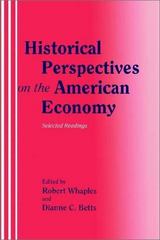Question
Consider an expected-utility decision maker choosing a non-negative bid of b dollars. The decision maker wins v [0, 1000] dollars whenever his bid b weakly
Consider an expected-utility decision maker choosing a non-negative bid of b dollars. The decision maker wins v [0, 1000] dollars whenever his bid b weakly exceeds a random number X , drawn uni- formly from the [0, 1000] interval. If the decision maker wins, he pays his bid b and wins the award v, while if he looses he does not pay anything and does not win the award. Find how much the decision maker bids if he is risk neutral and his preferences are strictly increasing in monetary holdings. Then, establish that he would bid more if he was risk averse with a utility function u(m) for monetary hold- ings m satisfying u > 0, u < 0, and u(0) = 0.
Step by Step Solution
There are 3 Steps involved in it
Step: 1

Get Instant Access to Expert-Tailored Solutions
See step-by-step solutions with expert insights and AI powered tools for academic success
Step: 2

Step: 3

Ace Your Homework with AI
Get the answers you need in no time with our AI-driven, step-by-step assistance
Get Started


